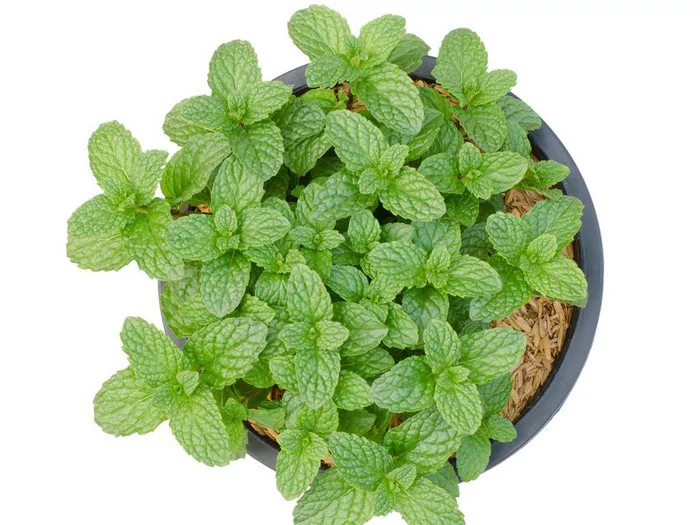The allure of peppermint extends far beyond its refreshing taste and invigorating aroma. While commonly known as a culinary herb and a popular flavor in candies and oral care products, peppermint possesses a range of properties that make it a potent natural repellent. From deterring pests to alleviating ailments, the peppermint plant has earned a revered status in both traditional and modern applications. In this article, we delve into the multifaceted benefits of peppermint, exploring what it can keep away and how it achieves these remarkable feats.
Peppermint: A Botanical Marvel
Before we explore its repellent qualities, it’s essential to understand the botanical intricacies of peppermint. Peppermint (Mentha × piperita) is a hybrid plant, a cross between watermint and spearmint, known for its aromatic leaves and distinctive flavor. Native to Europe and the Middle East, peppermint has been cultivated for centuries for culinary, medicinal, and aromatic purposes.
Peppermint’s characteristic scent is attributed to its high concentration of essential oils, particularly menthol. This compound not only contributes to its refreshing flavor but also serves as a natural insect deterrent. Additionally, peppermint contains other volatile compounds like menthone, limonene, and pulegone, each contributing to its multifunctional properties.
Repelling Pests Naturally
One of the most renowned qualities of peppermint is its ability to repel pests naturally. Whether it’s insects invading your garden or critters infiltrating your home, peppermint can act as a formidable barrier, keeping unwanted visitors at bay. Here are some common pests that peppermint can effectively repel:
1. Insects:
Peppermint oil is a well-documented insect repellent, capable of warding off various pests such as mosquitoes, ants, spiders, and cockroaches. The strong scent of peppermint disrupts insects’ olfactory receptors, making it difficult for them to locate sources of food and shelter. As a result, planting peppermint around your home or using peppermint oil-based repellents can help create an insect-free environment.
2. Rodents:
Rodents like mice and rats are notorious for invading homes and causing damage. Peppermint’s potent aroma serves as a natural deterrent for rodents, deterring them from entering spaces where peppermint is present. Placing cotton balls soaked in peppermint oil in strategic locations or using peppermint-infused deterrent sprays can help keep rodent infestations under control.
3. Pets:
Peppermint is also effective at repelling certain pests that bother pets, such as fleas and ticks. Incorporating peppermint oil into pet shampoos or creating a diluted peppermint spray for their bedding can help protect them from these irritating parasites.
Alleviating Respiratory Issues
Beyond its pest-repellent properties, peppermint offers a range of health benefits, particularly in alleviating respiratory issues. The menthol content in peppermint acts as a natural decongestant and expectorant, making it effective in managing symptoms associated with respiratory conditions such as:
1. Congestion:
Inhaling the vapors of peppermint oil can help clear nasal passages and relieve congestion caused by colds, allergies, or sinus infections. The cooling sensation of menthol provides instant relief, allowing for easier breathing and improved airflow.
2. Coughing:
Peppermint’s soothing properties can help suppress coughing and alleviate throat irritation. Whether consumed as a tea or inhaled through steam inhalation, peppermint can provide symptomatic relief for persistent coughs.
3. Bronchitis:
Peppermint oil has been traditionally used to alleviate symptoms of bronchitis, including coughing, wheezing, and chest tightness. Its anti-inflammatory properties can help reduce inflammation in the airways, promoting easier breathing and faster recovery.
Easing Digestive Discomfort
In addition to respiratory benefits, peppermint is revered for its ability to soothe digestive discomfort and promote gastrointestinal health. The volatile oils present in peppermint, particularly menthol, have a calming effect on the muscles of the digestive tract, making it effective in managing various digestive issues, such as:
1. Indigestion:
Peppermint tea is a popular remedy for indigestion and bloating. Its carminative properties help relax the muscles of the stomach and intestines, reducing spasms and facilitating the passage of gas. Consuming peppermint tea after meals can aid in digestion and alleviate postprandial discomfort.
2. Irritable Bowel Syndrome (IBS):
Peppermint oil has been extensively studied for its efficacy in managing symptoms of irritable bowel syndrome, a chronic gastrointestinal disorder characterized by abdominal pain, bloating, and altered bowel habits. The antispasmodic effects of peppermint oil can help reduce abdominal pain and improve bowel function in individuals with IBS.
3. Nausea:
Peppermint has long been used as a natural remedy for nausea and motion sickness. Whether consumed in tea form or through inhalation, peppermint can help alleviate queasiness and settle an upset stomach, providing relief from nausea.
Conclusion
In conclusion, the peppermint plant’s remarkable properties extend far beyond its culinary appeal. From repelling pests to alleviating respiratory and digestive issues, peppermint stands as a testament to the potent capabilities of nature’s bounty. Whether incorporated into your garden, home, or wellness routine, peppermint offers a natural and effective solution to a myriad of everyday challenges. By harnessing the power of peppermint, you can create a healthier, more harmonious environment for yourself and your loved ones, all while embracing the wonders of the natural world.


